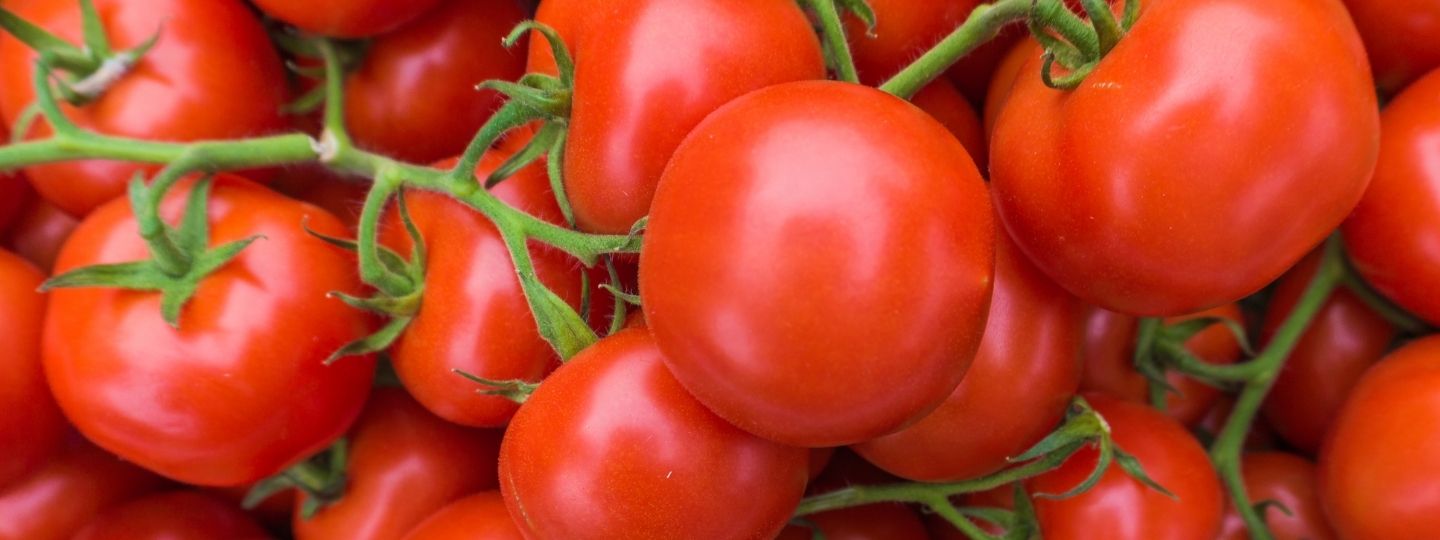Are tomatoes bad for arthritis?
25 August 2021
Can eating too many tomatoes lead to inflammation and arthritis symptoms? Not necessarily. But unfortunately, there’s a persistent myth that tomatoes will make your arthritis symptoms worse.
There’s no evidence that diets where you cut certain foods out, also known as elimination or exclusion diets, helps osteoarthritis symptoms.
They’ve been shown to sometimes help people with rheumatoid arthritis symptoms. But what works for one person, may not work for another. So, it’s worth speaking to your healthcare team before cutting anything out.
If you have any type of arthritis you should try to eat:
- a balanced diet to get the vitamins and nutrients you need
- a more Mediterranean-style diet which includes fish, pulses, nuts, olive oil and plenty of fruit and vegetables
- more omega-3 fatty acids, for example from oily fish.
Although there are no diets or supplements that will cure your arthritis, some people do find that their condition is affected by what they eat and their exercise levels.
Whatever you choose to do, it’s important to strike a balance between medication and lifestyle changes.
As there’s so much health information available, it can be hard to know what to believe.
Here are a few tips that might help you:
- Read beyond the headline - remember that headlines are often written to drive clicks and grab a reader’s attention. As a result, health information is often simplified or written in an alarming way.
- Consider the evidence - are the claims backed up by research data?
- Use a fact-check website, for example, Full Fact.
If you have any questions about what foods to eat or avoid, speak to your healthcare professional.
Is there a link between nightshade vegetables and inflammation?
Some people feel that eating foods from the nightshade family, also known as solanaceous vegetables, may make their arthritis worse. But research has shown that there is no link between inflammation and solanaceous vegetables.
Examples of nightshade vegetables include:
- Tomatoes
- Peppers
- Potatoes
- Aubergines
It’s possible to have food allergies that are linked to the nightshade family, so if you’re concerned about this, we recommend you speak to a healthcare professional.
Fruits and vegetables are packed with important vitamins and minerals that you need for a balanced diet. So, if you're considering cutting them out, you should speak to a healthcare professional first.
Should I cut out gluten, dairy or choose a plant-based diet?
Many people with arthritis have concerns about a link between eating gluten and the symptoms of arthritis being made worse. But there is no research that directly links gluten to any type of arthritis.
Some people can experience problems with gluten, including coeliac disease, allergy and intolerances. But these are very rare, and you should speak with a doctor or dietitian if you are having problems.
Some people say that a dairy-free diet helps their arthritis. However, research on this is mixed, so it’s worth seeing what works best for you.
If you feel unwell after eating dairy, you could be lactose intolerant. This means that you can't properly digest lactose, the sugar that's naturally found in milk products. If you're concerned about this, it’s worth speaking to your doctor.
Dairy products, such as milk and yoghurt, are packed with calcium. Calcium helps to maintain healthy bones, and if you don’t get enough calcium, it can increase your risk of developing osteoporosis. Many people with arthritis are at a greater risk of developing osteoporosis
If you decide to follow a vegan or plant-based diet, it can help you get more fruit and vegetables on to your plate It's important to make sure you get all the nutrients you need, particularly calcium, vitamin B12, vitamin D and selenium. Read our vegan diet tips.
Does citrus make arthritis symptoms worse?
Some people have reported that citrus fruits worsen their symptoms, particularly inflammatory types of arthritis like rheumatoid arthritis. However, there’s no clear link between citrus fruits and inflammation, so it’s probably fine for you to eat them.
In fact, there is some evidence that they can reduce the risk of inflammatory arthritis and they’re now thought to offer some benefits to people with arthritis in reducing their symptoms.
It’s possible to have an allergy to citrus fruits, so if you notice worsening symptoms when you eat them, it might be worth speaking to your doctor to get further advice.
Is fasting helpful?
Fasting, where you don’t eat for a period of time to reduce symptoms, can help control pain and inflammation in conditions such as rheumatoid arthritis. But the effects of this are only temporary, and it can be extreme and unsafe. Symptoms usually return after you complete the fast.
Learn more about navigating health advice and eating well with arthritis.
We’re here whenever you need us.
- If you would like to talk to someone, you can call our free helpline on 0800 5200 520
- Talk to our arthritis virtual assistant, 24/7
- Join our online community
- Stay in touch and follow us on Twitter, Facebook and Instagram.
You might also be interested in...
-
Five top tips on navigating health advice about arthritis.
Here, we address some of the most frequently asked questions about diet and exercise for people with arthritis.
-
Learn why food labels matter
Knowing what’s important on food labels can be confusing. Here's what to look for so you can make smart food choices.